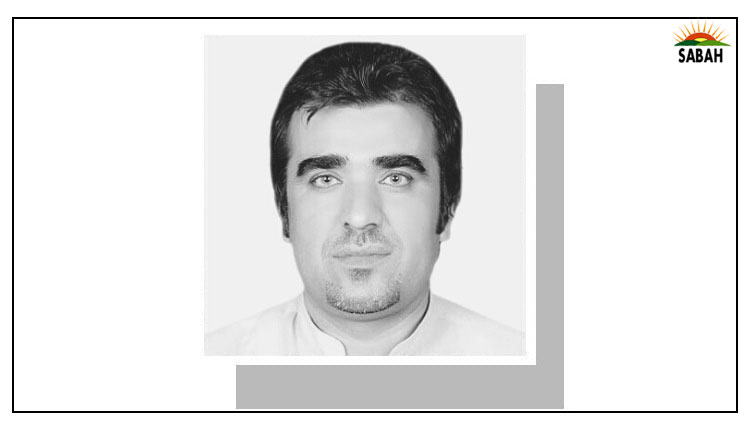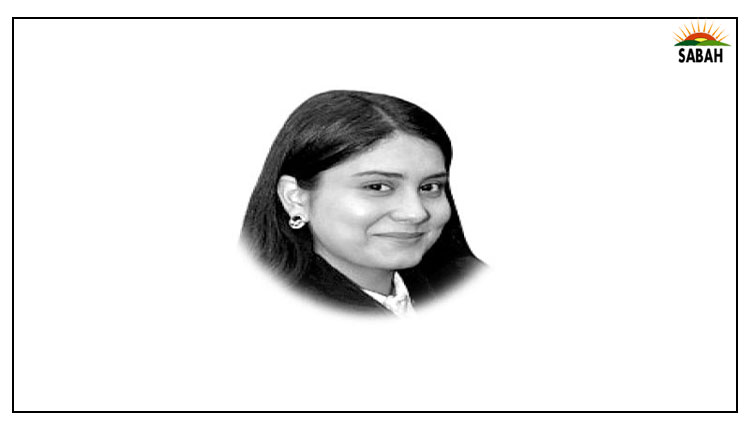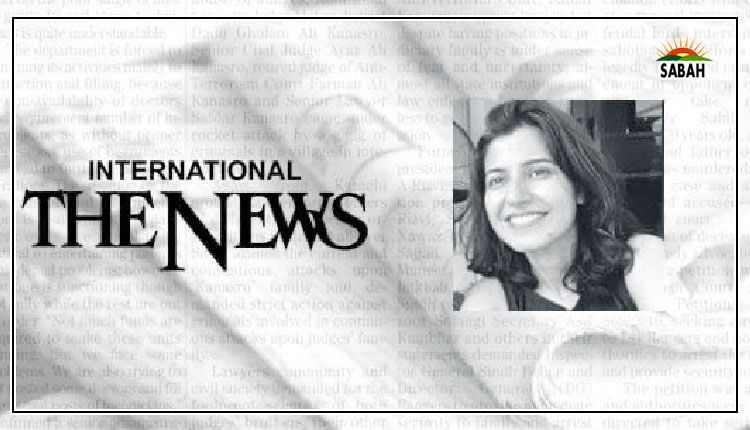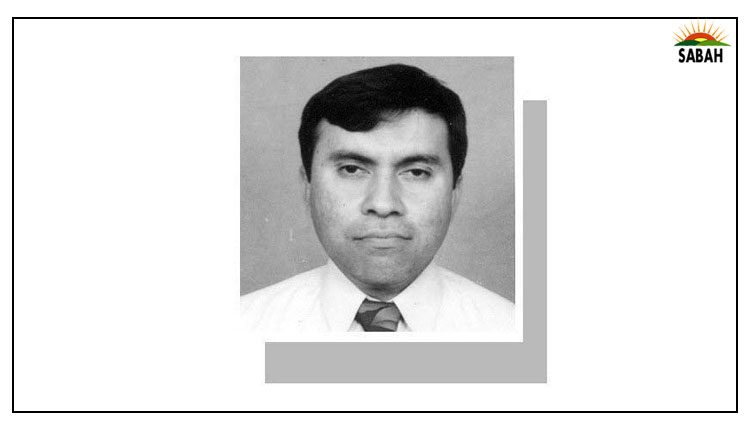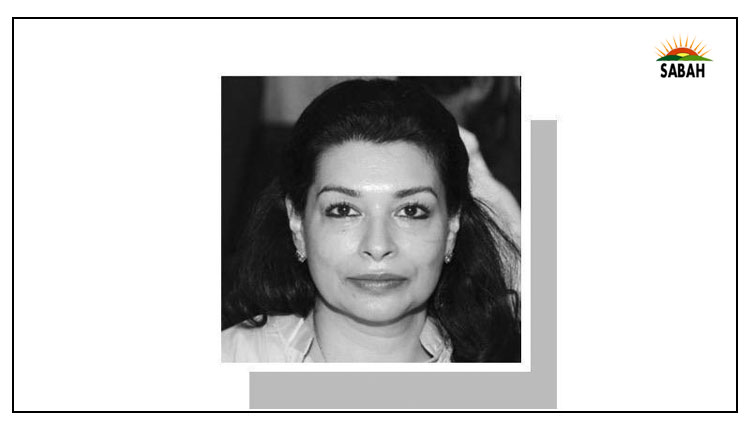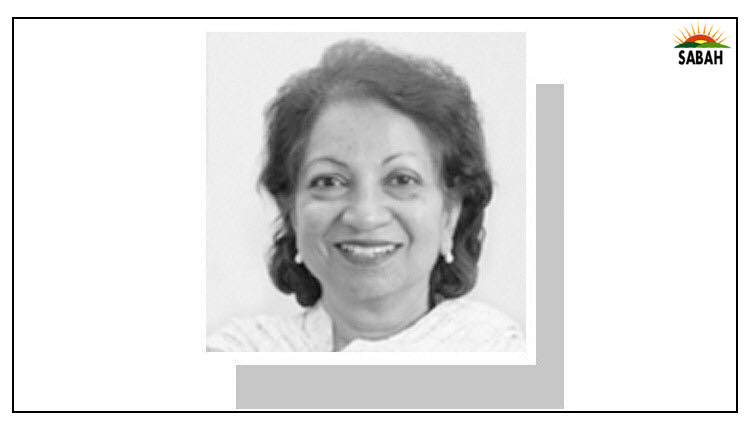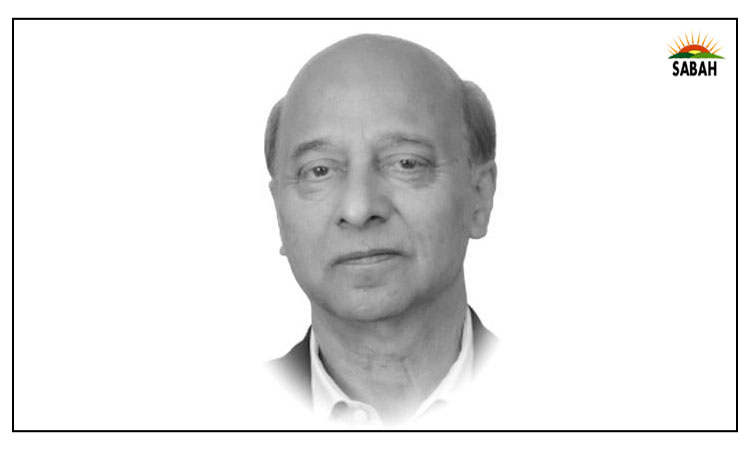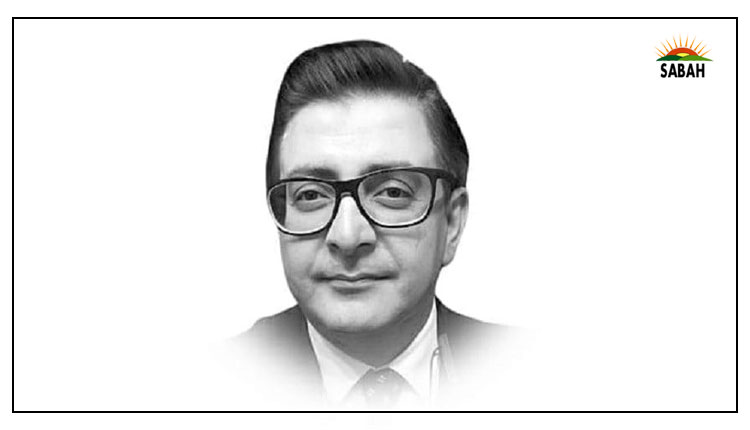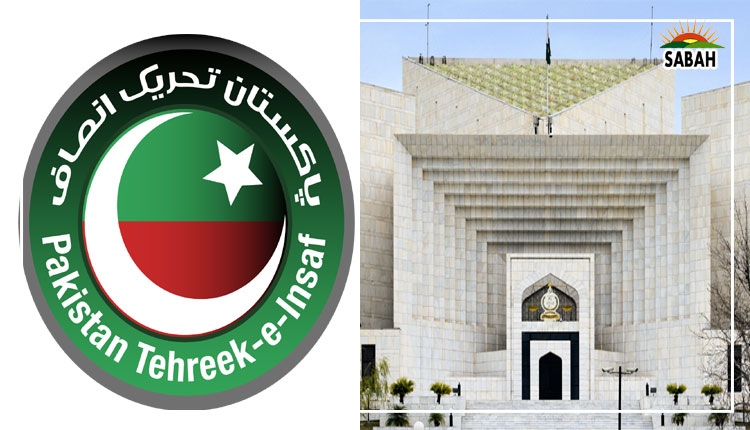Apex Court dismisses Chairman PTI’s plea against Toshakhana trial
ISLAMABAD, August 04 (SABAH): The Supreme Court of Pakistan on Friday dismissed former premier and Chairman Pakistan Tehreek-e-Insaf (PTI) Imran Khan’s plea against trial proceedings pertaining to the Toshakhana criminal complaint after he withdrew the petition.
On Wednesday, the apex court had turned down Imran Khan’s request to stay the trial in the Toshakhana case being heard at an Islamabad sessions court. However, it had also granted relief to the PTI chief by postponing further proceedings till Friday so that he could approach the court again in case any adverse order was passed by the Islamabad High Court (IHC).
A three-member SC bench, led by Justice Yahya Khan Afridi and comprising Justice Sayyed Mazahar Ali Akbar Naqvi and Justice Ms. Musarrat Hilali was set to hear Imran Khan’s plea on Friday. However, the bench was reconstituted earlier on Friday with Justice Hasan Azhar Rizvi replacing Justice Naqvi.
During the hearing, Advocate Khawaja Haris Ahmed appeared as Imran Khan’s counsel while Advocate Amjad Pervaiz appeared as the counsel for the Election Commission of Pakistan (ECP).
At the outset of the hearing, the apex court observed that the trial court could not reserve its verdict on the Toshakhana case until the IHC’s gave its verdict.
Justice Afridi summoned the ECP lawyer to the rostrum, upon which Imran’s lawyer informed the court that the IHC had reserved its verdict yesterday on his client’s pleas.
The judge then asked, “Has the high court given a stay order?” to which Advocate Haris answered in the negative.
“The trial court cannot make a decision until a decision is made on the plea to transfer the case,” Justice Afridi noted.
At this, the ECP lawyer said Section 528 (sessions judge may withdraw cases from assistant sessions judge) of the Code of Criminal Procedure was “clear on this matter”.
Under the said section, “any sessions judge may withdraw any case from, or recall any ease which he has made over to, any assistant sessions judge subordinate to him”.
At one point during the hearing, Justice Afridi asked Advocate Haris about the current status of the pleas pending in the IHC, to which he responded that the IHC heard four pleas yesterday and that requests were also made during the arguments.
“We have requested the high court that the case be transferred to any other judge,” the PTI chief’s lawyer said.
He further informed the apex court of the IHC’s dismissal of Imran’s witnesses in the Toshskhana trial.
Here, Justice Afridi asked the lawyer, “Has the high court given you any interim relief?”, to which the latter replied that the IHC “has not issued the interim order” yet.
Advocate Haris further apprised the Supreme Court that the IHC would possibly issue its verdict today on his pleas.
At this point, Justice Afridi noted: “If both the respondents agree on the law, then we may write in the order”.
However, the ECP lawyer asked the court to not include his consent in the written order, adding that Imran’s lawyer “interprets the order in his own way”.
Justice Afridi said that the matter had “now gone beyond the law and had come to the respondents’ consent”.
However, Advocate Pervaiz lamented that Advocate Haris “misinterprets if I express consent”.
While dismissing the plea, the apex court observed that the application seeking the transfer of the case to another court was under way in the IHC. The court expressed the hope that the trial and the IHC will make decisions as per the law.
The Supreme Court observed that the said decision would not affect other pleas filed by Imran Khan.
The case, filed by ruling party lawmakers, is based on a criminal complaint filed by the ECP.
The case alleges that Imran had “deliberately concealed” details of the gifts he retained from the Toshaskhana — a repository where presents handed to government officials from foreign officials are kept — during his time as the prime minister and proceeds from their reported sales.
According to Toshakhana rules, gifts/presents and other such materials received by persons to whom these rules apply shall be reported to the Cabinet Division.
Imran has faced a number of legal issues over his retention of gifts. The issue also led to his disqualification by the ECP.
On Oct 21, 2022, the ECP concluded that the former premier had indeed made “false statements and incorrect declarations” regarding the gifts.
The watchdog’s order had said Imran stood disqualified under Article 63(1)(p) of the Constitution.
Subsequently, the ECP had approached the Islamabad sessions court with a copy of the complaint, seeking proceedings against Imran under criminal law for allegedly misleading officials about the gifts he received from foreign dignitaries during his tenure as the prime minister.
On May 10, Imran had been indicted in the case, rejecting his petition to declare the Toshkhana case inadmissible. However, on July 4, the Islamabad High Court (IHC) had overturned the said ruling.
On July 8, an Islamabad district and sessions court had declared the Toshakhana case against Imran to be maintainable. Subsequently, the former premier challenged the session court’s verdict in the IHC.




